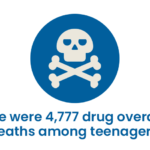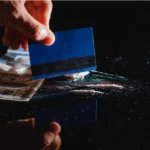When chronic drug users and alcoholics separate from an addictive substance they often need help coping with withdrawal. Drug Detox is a popular umbrella term in the lingo of addiction recovery services, but new terms are emerging. The Substance Abuse and Mental Health Services Administration defines crisis stabilization as “a direct service that assists with deescalating the severity of a person’s level of distress and/or need for urgent care associated with a substance use disorder.”
Addiction recovery vocabulary can be confusing. Any time an alcoholic or drug addict (especially an opiate addict) slowly or abruptly stops using – whether voluntarily or due to circumstances – the addict will experience some form of withdrawal. When a person addicted to drugs or alcohol seeks recovery services for the symptoms of withdrawal, the process is called detox or crisis stabilization or medically managed withdrawal. So the services that fall under the umbrella term “detox” always involve withdrawal but withdrawal doesn’t always involve “detox”.
What Detox Is And What It Isn’t
According to the Federal Department of Health and Human Services, important key characteristics of successful detox and crisis stabilization are:
- Detoxification in and of itself does not constitute complete substance abuse treatment.
The detoxification process consists of three essential components: evaluation, stabilization, and fostering patient readiness for and entry into treatment. - Detoxification can take place in a wide variety of settings and at a number of levels of intensity within these settings; placement needs to be appropriate to the patient’s needs.
- A successful detoxification process can be measured in part by whether an individual enters and remains in some form of substance abuse treatment after detoxification.
Drug or alcohol detox and crisis stabilization are good places to start the road to recovery from addiction, but it’s crucial that we understand they are only the beginning. Because drug addiction and alcoholism are chronic, life threatening diseases that require life-long management, recovery is a marathon rather than a sprint. And as a beginning to that marathon, prescription drug or alcohol or opiate detox is the part where a marathon runner puts on the sneakers.
Addiction Science Experts Agree
The Center on Addiction and Substance Abuse at Columbia University:
“Detoxification is an important step in the recovery process, but it is not treatment for the disease….Drug and alcohol detox is only as effective as its follow-up care.”
The National Institute for Drug Abuse:
“Medical detoxification is only the first stage of addiction treatment and by itself does little to change long-term drug use….It is important to know that detoxification is not treatment; it is a first step that can prepare a person for treatment.”
Substance Abuse and Mental Health Services Administration:
“Detox alone with no follow-up is not treatment. Treating withdrawal is not the same as treating addiction.”
Successful recovery from addiction requires a continuum of care. Addiction treatment takes time. And sustained recovery from addiction or alcoholism requires a lifetime of maintenance, commitment, and vigilance.
Contact The Haven Detox by calling (561) 328-8627 to learn more!











